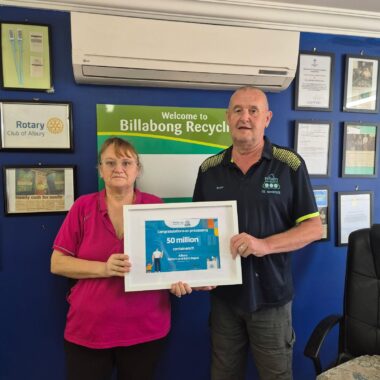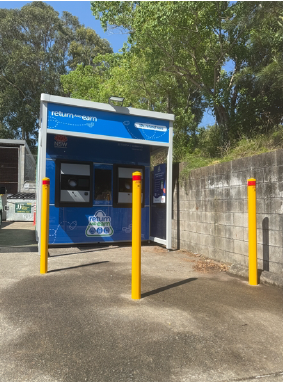Wednesday 20 December 2023
The following experts are available for comment in the wake of destruction from record-breaking flooding left by ex-Cyclone Jasper, which resulted in enormous amounts of rainfall impacting many communities in Far North Queensland. Cyclones forming against the backdrop of climate change can be more destructive as they can have stronger wind speeds, dump more rainfall, and retain their strength for longer upon reaching land.
COMMUNITY RESILIENCE
Rebecca McNaught, Research Fellow at Rural and Remote Health at the University Centre for Rural Health (University of Sydney), Volunteer President of South Golden Beach Community Resilience Team
Location: Lismore, NSW
Rebecca can talk in detail to collaborative inter-agency approaches to building disaster resilience, climate change adaptation, and communication of early warnings. She can talk to lessons from the Northern Rivers flood recovery for the North Queensland floods, calling for the need for investment in community resilience building in the face of worsening climate change, caused by the burning of fossil fuels.
Dr Jean Renouf founder and chair of Plan C, academic at Southern Cross University and on-call firefighter
Location: Lismore, NSW.
Jean can talk to community response and resilience efforts. Jean helps to run free community training that upskills community members in disaster preparedness and response to extreme weather events such as bushfires, floods and heatwaves. The training covers food, water and energy security, emergency communications, community-building, psychological first aid, and more. He has a wealth of knowledge and learnings and can talk about how best to prepare and adapt communities across Australia who may be faced with worsening climate change.
EMERGENCY SERVICES
Major General Peter Dunn is a former senior officer in the Australian Army, and former Commissioner for the Australian Capital Territory's Emergency Services Authority.
Location: Canberra, ACT
Peter’s role as Commissioner in the ACT saw him responsible for the ACT Fire Brigade, ACT Ambulance Service, Rural Fire Service and State Emergency Service. Peter can speak to the involvement of ADF in responding to domestic disasters, and how climate change is a security threat for Australia.
“Climate change is a security threat that’s occupying more attention of our most highly trained troops. Extreme weather events are becoming increasingly dangerous and frequent due to climate change, and our defence force is having to divert resources to respond to them more often.
“We need to get our house in order, and quickly, so that the Australian Defence Force can do what it is designed to do: defend Australia from external threats.
“There is no doubt that in responding to a call for help following Cyclone Jasper our defence personnel have helped people survive. But it is important to underscore that such emergency response is not their primary function, and in an ideal world we would have appropriate resources on hand so this would rarely occur.
“Amidst growing global tensions, Australia can’t afford for the Australian Defence Force to be stretched thin. But what choice do they have unless governments at all levels face the facts: the climate crisis is with us, and it is hurting Australian communities now. Both our emergency services as well as communities at large need to be much better resourced to cope with that so the ADF is rarely called to step in.
“Today, no leader in good conscience can continue to approve new coal, oil or gas projects when we know that more pollution means supercharging extreme weather and it is Queenslanders, and Australians at large, that are paying the price.”
HUMAN HEALTH IMPACTS
Dr Nicole Sleeman, GP and member of Doctors for the Environment Australia and the Climate and Health Alliance.
Location: Cairns, QLD
Nicole advocates for urgent action on climate change and for the protection and restoration of the earth's natural systems, for the sake of human health. She can discuss the impacts of flooding and extreme weather on physical and mental health outcomes in the context of Far North Queensland.
REEF
Tanya Murphy, Great Barrier Reef Community Campaigner, Australian Marine Conservation Society (AMCS)
Location: Cairns, QLD
Tanya is the Great Barrier Reef Community Campaigner for AMCS and a Cairns local who is living through the current flooding event. She can speak to the impacts this flood is having on the community, and also give commentary on the coastal impacts of this flooding event and how the associated run-off will affect the Great Barrier Reef.
Dr Scott J Heron, James Cook University (Townsville)
Location: Townsville, QLD
Dr Scott Heron is a specialist in the fields of coastal and near-shore environmental physics, based at the ARC Centre of Excellence for Coral Reef Studies, James Cook University. His research primarily investigates impacts on coral reefs, including coral bleaching and disease, reef resilience and conservation management, including the effects of climate change.
Scott is a co-lead developer of the Climate Vulnerability Index, a tool to assess the climate change risks to World Heritage and other protected areas, as well as their associated communities. Dr Heron has previously worked on IPCC reports, was a speaker at COP 26, he has worked with the UNESCO World Heritage Centre and has expert knowledge on how the World Heritage Committee assesses the climate vulnerability of world heritage sites.
ANIMAL IMPACTS
Dr Claire Madden, veterinarian
Location: Gold Coast, QLD
Dr Claire Madden is a vet in South East Queensland and a member of Vets for Climate Action. She can discuss the broad impacts of flooding on animals and practical tips to help affected wildlife both short and long-term. She can also discuss the help her clinic has provided in the aftermath of the floods, including looking after marine turtles, rescuing horses from an arena show and helping owners and pets at evacuation centres.
Dr Angela Frimberger, veterinarian
Location: Port Macquarie, NSW
Dr Angela Frimberger is deputy chair of Vets for Climate Action and a veterinary oncologist who founded Climate Vets. She practises in Port Macquarie, and can talk about the impact flooding had in her region as well as tips on how to keep animals safe during flooding. Angela has experienced dealing with animal emergencies during extreme flooding events, as she was on the ground when life-threatening floods impacted her region last year.
CLIMATE SCIENCE
Dr Karl Mallon, Founder and Director of Science and Technology, XDI (Cross Dependency Initiative).
Location: Sydney, NSW
Dr Karl Mallon is the Co-founder and Director of Science and Technology at XDI (Cross Dependency Initiative). With a background in both Physics and Mechanical Engineering, Karl has worked in climate change mitigation, policy and technical analysis since 1991.
“Warm waters create and sustain tropical cyclones and modelling of warming sea temperatures suggest tropical cyclones will start reaching further south. This means areas previously outside of cyclone zones will be the firing line but, unlike northern Australia, these areas lack the infrastructure designed to withstand such extreme weather events. At the same time, other research suggests an increase in the peak intensity of winds in regions already experiencing tropical cyclones.
“Limiting carbon emissions is happening too slowly to avoid many climate impacts, so the regions we're identifying need to prepare for winds and high seas of an intensity they have never experienced before. They should seriously consider adopting higher building standards typical of northern Australia as soon as possible, because transitioning the built environment to cope with the wider reach of cyclones will take many years."
Contact details:
For interviews with Major General Peter Dunn, please contact Lydia Hollister-Jones on [email protected] / 0448 043 015
For everyone else please contact Jemimah Taylor, 0478 924 425 [email protected] Sean Kennedy, 0447 121 378 [email protected]


